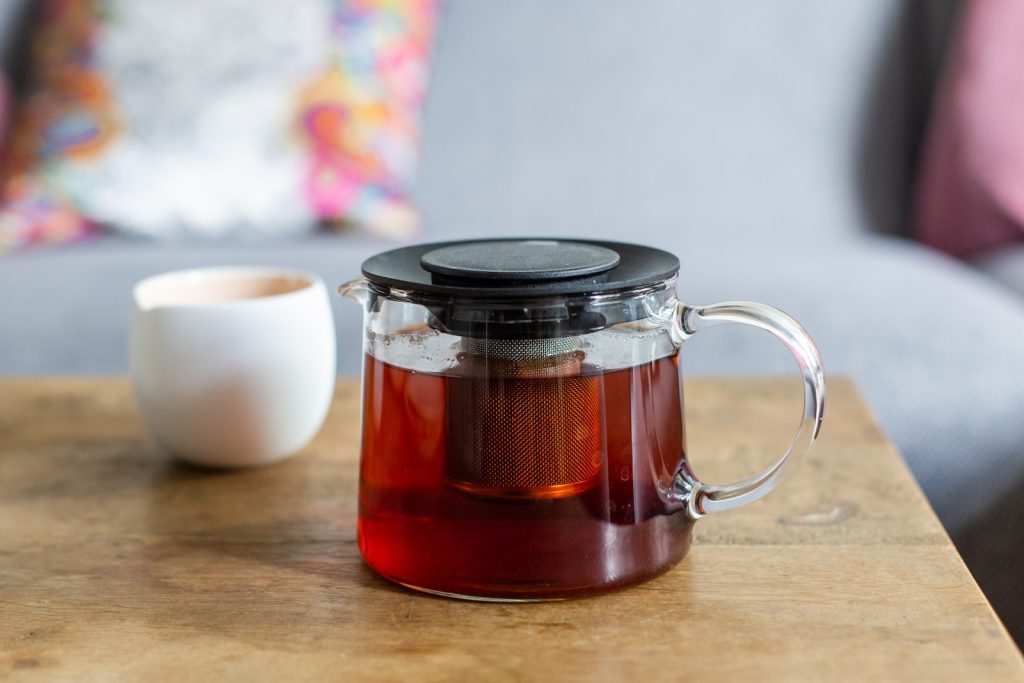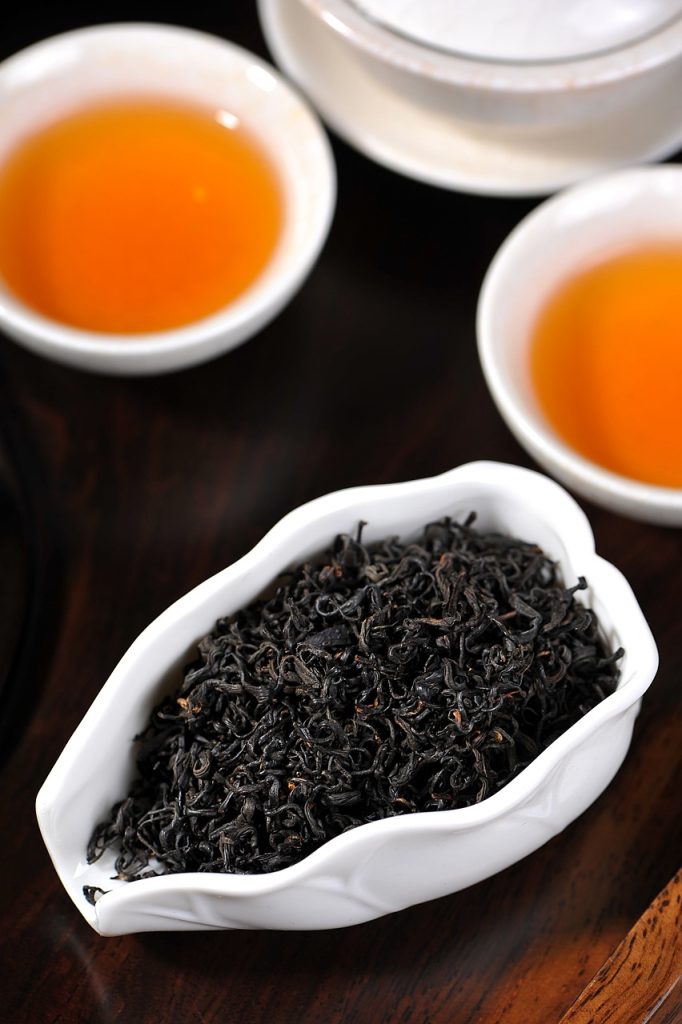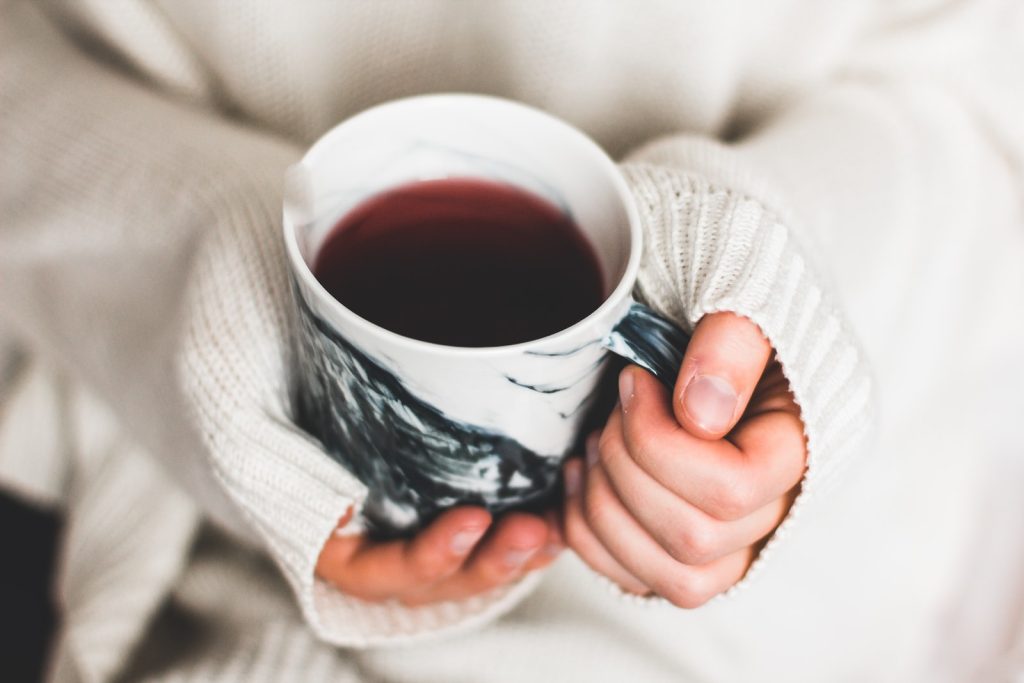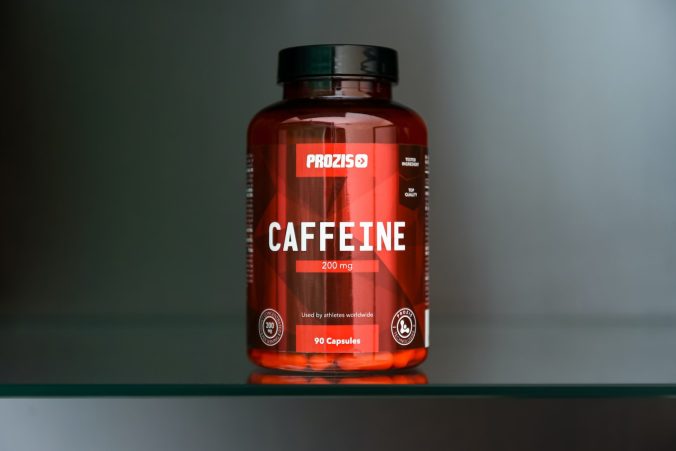Table of Contents
- Does Black Tea Have Caffeine
- 1. What Are The Caffeine Content Levels Of Black Tea?
- 2. The Different Types Of Black Tea And Their Caffeine Content
- 3. How Does Processing Affect the Caffeine Content of Black Tea?
- 4. Potential Health Benefits of Black Tea Consumption
- 5. How To Reduce The Caffeine Content Of Black Tea
- 6. Does decaffeinated black tea exist?
- Frequently Asked Questions about Black tea and caffeine
- Are There Any Benefits Of Drinking Caffeinated Black Tea?
- Conclusion
Does Black Tea Have Caffeine
Brewing the perfect cup of tea is an art. It requires patience, skill, and a keen eye for detail. Like any masterpiece, it must be created with precision; one wrong ingredient could ruin the entire experience. When drinking black tea, many people ask themselves, “Does black tea have caffeine?” The answer to this question can be compared to painting the Mona Lisa: you need all the elements in just the right amounts for everything to come together perfectly.
Caffeine is found in many different types of tea, but it’s important to know exactly how much each type contains so that your cup of tea ends up tasting exactly as desired. Black tea has been around for centuries, and its popularity continues to soar today due to its unique flavor profile and health benefits. But what about the amount of caffeine contained in black tea?

For those seeking answers regarding their favorite drink, they may not realize that deciphering the effects of caffeine on black tea is similar to solving a complex puzzle; there are multiple components at play that require thoughtful consideration before reaching a conclusion. In order to truly understand if black tea contains caffeine or not, we must explore further its origin and composition. After doing so, readers will gain insight into how much caffeine is present in every sip and why it matters when crafting the perfect cup!
1. What Are The Caffeine Content Levels Of Black Tea?
The question of caffeine content levels in black tea is one that stirs the passions of any true tea lover. Does this beloved beverage contain a stimulating substance? Or is it completely free from the effects of caffeine? Let us dive into this exploration and find out exactly what kind of energy lies beneath the surface of a cup of black tea.
When assessing the amount of caffeine present, we must first take into account how different types of tea are processed differently. For example, some varieties use more oxidized leaves, which can increase their caffeine concentration level compared to other kinds. Additionally, certain steep times and temperatures for brewing may also have an effect on the overall strength or potency of your brew.
It’s important to note too that everyone has their own personal preference when it comes to drinking tea and its associated characteristics, like flavor profile and energizing effects, so naturally, these will affect individual consumption habits as well. All things considered, most types of black tea generally range between 25 and 45 milligrams per eight ounces, slightly lower than coffee but still enough to provide you with a mild pick-me-up. So while many people enjoy black tea purely for its taste or aromatics, those looking for a bit more oomph might be interested in testing out a few different styles before finding one that suits them best!
In short, depending on the type and preparation method used, various amounts of caffeine can be found in black teas. But whether you’re seeking out something invigorating or just plain soothing, there’s sure to be an option available that meets all your needs!
2. The Different Types Of Black Tea And Their Caffeine Content
As any tea lover knows, there is a lot of variety when it comes to black tea. From the malty Assam and robust Ceylon to the fruity Darjeeling and smoky Lapsang Souchong, each type has its own unique flavor profile that makes for an enjoyable cup of tea. But how does caffeine content factor into this equation? Let’s take a look at some of the most popular types of black tea and their respective levels of caffeine.
Assam is known for its strong maltiness; however, it also contains relatively high amounts of caffeine. A typical 8-oz cup will contain about 47 mg of caffeine, just slightly less than what you’d find in a brewed cup of coffee (95–200 mg). On the other end of the spectrum, Darjeeling is much lower in caffeine, with around 25 mg per 8-oz cup. Other varieties fall somewhere in between these two extremes: Yunnan (36 mg), Nilgiri (40 mg), and Ceylon (45–60 mg).
No matter which type you choose, there are plenty of delicious ways to enjoy your favorite black tea while still getting your daily dose of energy! Check out our selection to find something perfect for your next cup of tea, whether you like it sweetened with honey or straight up without additives.
3. How Does Processing Affect the Caffeine Content of Black Tea?
As any tea lover knows, the way in which tea is processed can have a big impact on its flavor and caffeine content. So when it comes to black tea, how does processing affect the amount of caffeine?
The answer lies in two main factors: oxidation level and steaming time. Oxidation occurs as soon as the leaves are plucked from the plant, so if they’re allowed to oxidize for longer periods of time during production, then more caffeine will be released into the cup. On top of that, different types of black tea require varying amounts of steaming or pan firing after the withering process. The longer the leaves steam or burn, the higher their caffeine levels become.
So while all varieties of black tea contain some amount of caffeine, there’s definitely variability depending on how much oxidation and steaming have occurred during processing. Knowing this information can help you pick out your favorite type—one with just enough kick!
4. Potential Health Benefits of Black Tea Consumption
Ahh, black tea. It’s a classic beverage that is beloved by many for its flavor and energizing effects! But what else can it do for us? Let’s take a look at some of the potential health benefits associated with consuming black tea.
First of all, studies have suggested that drinking black tea could help reduce the risk of heart disease. This may be due to certain compounds in the tea, which act as antioxidants and protect our cells from damage caused by free radicals. Additionally, these compounds are thought to improve cholesterol levels, which can also lower your risk of developing cardiovascular problems.
Not only does black tea contain beneficial antioxidant components, but it has also been linked to improved mental health. Studies suggest that regular intake of this delicious beverage may help reduce stress and anxiety while improving overall cognition. Some researchers believe this effect is due to an amino acid known as L-theanine found in the leaves—so why not whip up yourself a cup next time you’re feeling overwhelmed?
So there you have it—if you’re looking for something tasty and refreshing, then consider giving black tea a try; who knows, maybe it will give you more than just an energy boost!

5. How To Reduce The Caffeine Content Of Black Tea
Are you a tea lover but trying to reduce your caffeine intake? There is good news: black tea can be enjoyed while still reducing the amount of caffeine consumed. Here are five ways that will help lower the quantity of caffeine in your cup of black tea:
- Brew with cooler water: By using cooler water, less of the caffeine from the leaves will be extracted. This simple trick could cut down on as much as 50% or more of the total caffeine content!
- Reduce steeping time: The longer you steep your tea, the more caffeine it contains. Shortening the brewing time of black tea by even just 30 seconds could make a significant difference in how much caffeine ends up in your cup.
- Use fewer leaves: When making loose-leaf teas, opt for using only 2-3 teaspoons per 8 ounces instead of 4-5. Not only does this save money, but it also reduces the amount of caffeine released into each sip.
- Look at origin and quality: Different regions produce different levels of caffeinated teas, so look for lighter Assam varieties, which usually contain around 50 mg/8 oz, compared to other origins such as Yunnan, which have higher concentrations upwards of 70 mg/8 oz! Furthermore, because of better oxidation processes during production, higher quality whole leaf grades will often yield significantly lower amounts of caffeine than their cheaper counterparts.
If you’re looking to enjoy black tea without all the extra jitters, then try out these tips at your next brew session! Enjoying high-quality cups without sacrificing taste and flavor can easily be done with some slight modifications to your brewing routine; this is perfect for those wanting to get an enjoyable experience even when cutting back on stimulants!
6. Does decaffeinated black tea exist?
Are you a fan of black tea and worried that it packs too much caffeine? Fear not, for there is always an alternative! Decaffeinated black tea exists—it’s as comforting and delicious as its caffeinated counterpart. It’s like the answer to your prayers in a mug!
With decaf tea, you can still enjoy all the flavorsome nuances of regular loose-leaf or bagged teas without having to worry about being wired afterward. Whether you’re looking for some herbal relaxation before bed or just want to sip on something warm during the day without feeling jittery, decaffeination has got your back.
So don’t hesitate to give this delightful beverage a try—from classic English Breakfast blends to more exotic varieties, there are many options to choose from. As long as it’s labeled “decaf,” then rest assured knowing that your cup will be free of any unwanted caffeine kick!
Frequently Asked Questions about Black tea and caffeine
Ah, the beloved cup of black tea! Let’s talk about caffeine in this particular type of tea. Many people love to indulge in a hot cup of black tea for its intense flavor and aroma. But does it have any caffeine?
The answer is yes! The amount of caffeine varies from one variety of black tea to another, but on average you can expect around 40 to 60 milligrams per 8 ounces. For instance, Assam Black Tea has roughly 50 milligrams, while Darjeeling has half that at 25 milligrams. As a comparison, an average 8-ounce cup of brewed coffee contains approximately 95 milligrams, so if you’re looking for something with less kick than coffee but still enough stimulation to get your day going, try some black tea!
So how much caffeine should you be drinking each day? It all depends on your individual needs and preferences. Some folks prefer more energizing teas like strong English Breakfast or Earl Grey, while others may opt for something milder, such as green tea, which typically contains only around 20 to 30 milligrams per 8 ounces. Whatever your preference, just remember to enjoy it responsibly and don’t overdo it!
Caffeine has been found to provide several benefits when it comes to physical health. These include increased alertness and improved cognitive performance, as well as better muscle endurance during exercise. Here’s a quick list of ways caffeine affects the body:
Increases energy levels
Improves focus
Enhances athletic performance
Increases metabolism rate
Can reduce headaches & fatigue
To answer this question, we must first understand how black tea is made. All types of tea come from the same plant, Camellia sinensis, but they are processed differently. Black tea is fully oxidized before being dried and packaged for sale; this process releases polyphenols that give it its deep color and full-bodied flavor. Since polyphenol oxidation also increases levels of caffeine in the leaves, one might assume that all black tea would have similar amounts of caffeine per serving.
But there are many factors that affect the amount of caffeine found in any given cup: growing conditions such as soil type or rainfall; temperature during harvesting; processing techniques like fermentation time or drying method; even where on the bush the leaves were picked (younger leaves tend to contain higher levels). The quality of ingredients used by a particular manufacturer may also influence caffeine levels between brands. So while two cups of black tea will likely contain some form of stimulant, knowing which company produced it can help you determine just how much.
If a tea drinker wants to get the most energy out of their cup, they should think about all of these things.
Yes. Caffeine levels in black teas vary depending on the type and brewing time but generally speaking, if you drink more than 4 cups of tea per day, you could be getting close to 400 mg of caffeine, well above the recommended daily dose of 300 mg or less. Consuming this amount could bring about some side effects, such as headaches, insomnia, irritability, and palpitations.
So while there are health benefits associated with moderate consumption of caffeinated black tea, including improved alertness and digestion, it’s important to keep your intake at a reasonable level for optimal well-being. Be sure to read labels carefully so you’re aware of exactly how much caffeine each cup contains!
Are There Any Benefits Of Drinking Caffeinated Black Tea?

Are there any benefits to drinking caffeinated black tea? Well, that all depends on your perspective. For many people, the answer is a resounding “yes!”
Tea has been around for centuries and has long been celebrated for its potential health benefits. Here are just some of the reasons why you might want to consider adding caffeinated black tea to your daily routine:
• It can help boost alertness and mental focus—thanks to its caffeine content, it’s no wonder that so many rely on black tea as an energy booster!
• The antioxidants found in black tea may protect against free radicals, which can cause cell damage. This means that regular consumption may reduce your risk of developing diseases such as cancer in the future.
• Studies have also shown that drinking caffeinated teas like black tea on a regular basis may improve heart health by lowering bad cholesterol and making arteries work better.
• Finally, some research suggests that drinking caffeinated beverages like black tea may even lead to improved digestion due to increased gut motility.
As any true tea lover knows, there’s something special about taking a moment each day to enjoy a cup of this delicious beverage—especially if it comes with some unexpected health benefits! So why not give caffeinated black tea a try today?
Conclusion
In conclusion, black tea is a delicious and versatile beverage that can provide a healthy dose of caffeine for those looking to enjoy the stimulating effects. While it’s true that most brands of black tea contain some level of caffeine, the amount varies depending on how long it has been steeped and what type of tea leaves were used. To get the full benefit from your cup of black tea, try varying the strength and flavor profile by experimenting with different types and brewing times.
As an avid tea lover myself, I often find great pleasure in sipping my favorite cup of caffeinated black tea while taking in the fresh aroma as well as its subtle nuances. Drinking this delicious brew keeps me alert throughout the day without leaving me feeling overwhelmed or jittery like I do after drinking too much coffee.Plus, there are many potential health benefits associated with regular consumption, such as improved cardiovascular health, improved digestion, increased energy levels, and enhanced mental clarity.
Overall, I believe drinking caffeinated black tea is one of life’s simple pleasures that should be enjoyed responsibly. A good rule of thumb is to monitor your intake and make sure you don’t exceed more than 400 milligrams per day—about four cups of brewed black tea—so you can continue to reap all the positive rewards!
